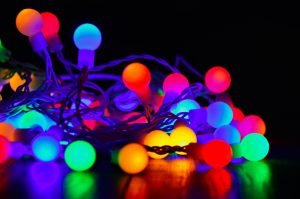- Old appliances use more energy than newer models with Energy Star ratings.
- Turn off electronics when not in use, don’t just put them into standby mode.
- Signs that an appliance needs to be replaced include strange noises, leaks and odors.
- Switch to LED bulbs for lighting and install motion sensors or timers.
- Programmable thermostats help to reduce cooling costs.
Many people are guilty of wasting energy in their homes, whether it’s leaving lights on, running the dishwasher when it’s not complete, or simply keeping the thermostat a few degrees too high. All these little things add up to big energy costs over time.
Unfortunately, being unaware of how your everyday habits can impact your energy bills isn’t the only cause of high energy use. This article will explore five of the most common reasons why your home uses too much energy and what you can do about it.
Appliances and Electronics

Old appliances are one of the biggest culprits in wasting energy in your home. If your refrigerator is more than ten years old, chances are that it uses twice as much electricity as a newer model with an Energy Star rating.
With TVs and other electronics, ensure they are turned off entirely when not in use—not just put into standby mode—to save even more energy. However, there are ways to know if it’s time to replace old and outdated appliances, such as:
Strange noises
One of the tell-tale signs that your appliance is on its last legs is if you hear strange noises coming from it. This could signify that the appliance’s motors or fans are wearing out, which can happen over time and lead to increased energy use.
Leaks and Odors
Leaky appliances and strange odors usually mean something isn’t quite right. If you smell something strange or see water leaking from an appliance, it’s likely time to replace it with a more efficient model.
Lights
The easiest way to reduce your energy costs when it comes to lighting is simply by switching to LED bulbs. Not only do they last longer than traditional incandescent bulbs, but they also consume far less electricity. You can also reduce your lighting costs by installing motion sensors or timers on lights that are used frequently or outdoors, so they don’t stay on unnecessarily.
HVAC System
If you have an older HVAC system in your home, consider investing in a programmable thermostat so you can control the temperature remotely and keep the house cooler while you’re away during the day or asleep at night. This simple step can help reduce your cooling costs by as much as 15%. There are simple ways to ensure that your HVAC system is running efficiently, here are a few examples:
Installing heat cables
Roof and gutter heat cables can be installed around roof edges to keep snow from accumulating and causing roof damage. This will help ensure that your roof is well insulated, reducing the amount of energy needed to heat your home during winter months.
Cleaning HVAC filters

It’s important to clean or replace your air filter at least once a month to maintain optimum airflow and reduce energy costs. This is especially important if you have pets that shed a lot of fur.
Water Heater
your water heater accounts for about 18% of your total energy consumption each month so make sure its set correctly according to manufacturer instructions and check for any leaks that could be causing it to run excessively long cycles. Additionally, consider getting a tankless water heater if you have the space for one; they are much more efficient than traditional models and won’t waste nearly as much hot water while still providing plenty of hot water for showers and laundry needs alike!
Windows & Doors
Drafty windows and doors can cause a lot of wasted energy due to air leakage into and out of your home; this means that even if you keep them closed tight enough not to hear any wind whistling through them, there’s still enough air coming through them that causes a net loss in terms of efficiency gains from insulation alone! Consider investing in caulk or weather stripping around these areas if possible- this will help seal off those pesky drafts, so you don’t have to worry about them anymore!
Reducing energy usage should be something we all strive for – not only does it save us money on our monthly bills but it also helps contribute towards creating a more sustainable future for generations ahead! By being mindful of how we use our appliances, lights, HVAC systems, water heaters, windows & doors – we can create an environment where everyone benefits from reduced emissions & conserved resources! Thanks for reading – let’s all do our part in making our homes more efficient today!






